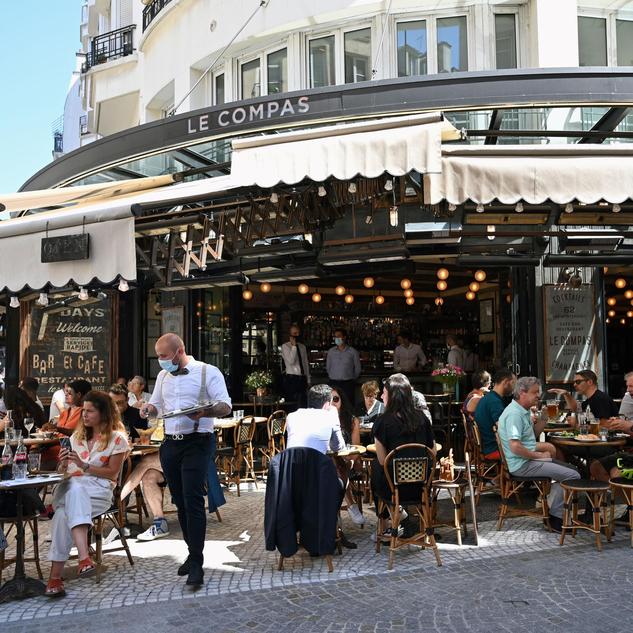The love of the French for terraces, a cultural exception?
Wednesday, May 19, day of glory, the terraces reopen and prepare to reconnect with several million French people thirsty... for conviviality. What connects us to these outdoor living spaces? Why did we miss the terrace so much? Patrick Rambourg, historian expert in gastronomy and culinary practices, tells us more about this old Parisian specialty of the 19th century. Details.
Madame Figaro.- The reopening of the terraces is expected by many. What do they embody that is so unique compared to closed dining rooms? Patrick Rambourg. – They offer a different sociability. In a restaurant, there is a form of ceremony charged with unconscious codes that have been embedded in us for a very long time. We don't do anything there, we behave well, for ourselves but also so as not to bother others. If someone starts talking very loudly, everyone will turn around, for example. Outside, we are more free to move, we are in the open air, it offers the feeling of greater freedom.
Do the French have a special link with terraces? It is enough to observe the attitude of the population after the first deconfinement, to understand the intensity of this attachment. The terraces were immediately taken by storm. During the last confinement, some cafes also offered drinks and it was not uncommon for crowds to form outside, to find a semblance of a terrace.
Alison Wheeler's declaration of love for café terraces
How to explain this love? The link is very personal. The terraces are dozens and dozens of people having a drink side by side, but each one has a familiar one and a very specific moment to enjoy it. There are the morning people who take their coffee there, read the newspaper, those who have a quick lunch there, those who stroll for entire afternoons, and then this great rush at the end of the day, to relax after work. A terrace is alive all day but the clientele is never the same. Finally, the attachment stems also and above all from the love of the French for restaurants and cafés, terraces being an extension of this. Note also that the latter are really anchored in the urban landscape under Napoleon III, when Haussmann transforms Paris, opens the main avenues and widens the sidewalks.

Can we then speak of a French cultural exception? It is true that if we go to the south of Europe, to Spain or Italy for example, we see that the inhabitants are followers of it, but because the favorable climate there. Here is in my eyes the big difference: the French do not seem to depend on the weather when it comes to landing outside. The enthusiasm does not come so much from the surrounding warmth but from a very strong desire to share. It is also the joy of being installed and surrounded by other people. This noise, this life create a very strong cohesion.
Does the exception also come from the fact that the French have always had a taste for debate? Indeed, café terraces are also places where one learns, where one can read. The first cafés and restaurants in Paris offered their customers newspapers and magazines for free. It was a place to learn, listen, discuss and understand how the country works. The terraces are also a form of democratization in themselves, they offer social and gender diversity. At the time, there were both men and women there, whereas for a very long time, the interior of a café was reserved for men. On a terrace, everyone mixes. In the cafes of the small towns, the mayor goes to have a drink and meets the municipal employees, the workers and the artisans of the area. There's no better way than these outdoor living spaces to feel the pulse of a population.
What symbolism can we see behind this reopening of terraces in France? Freedom! The desire to rediscover this sociability which also takes place instinctively, without even knowing the neighbor at the table. Because that's a bit like this, this “French art of living”: the fact of feeling good and above all of feeling good together. And today, nothing seems more important.








